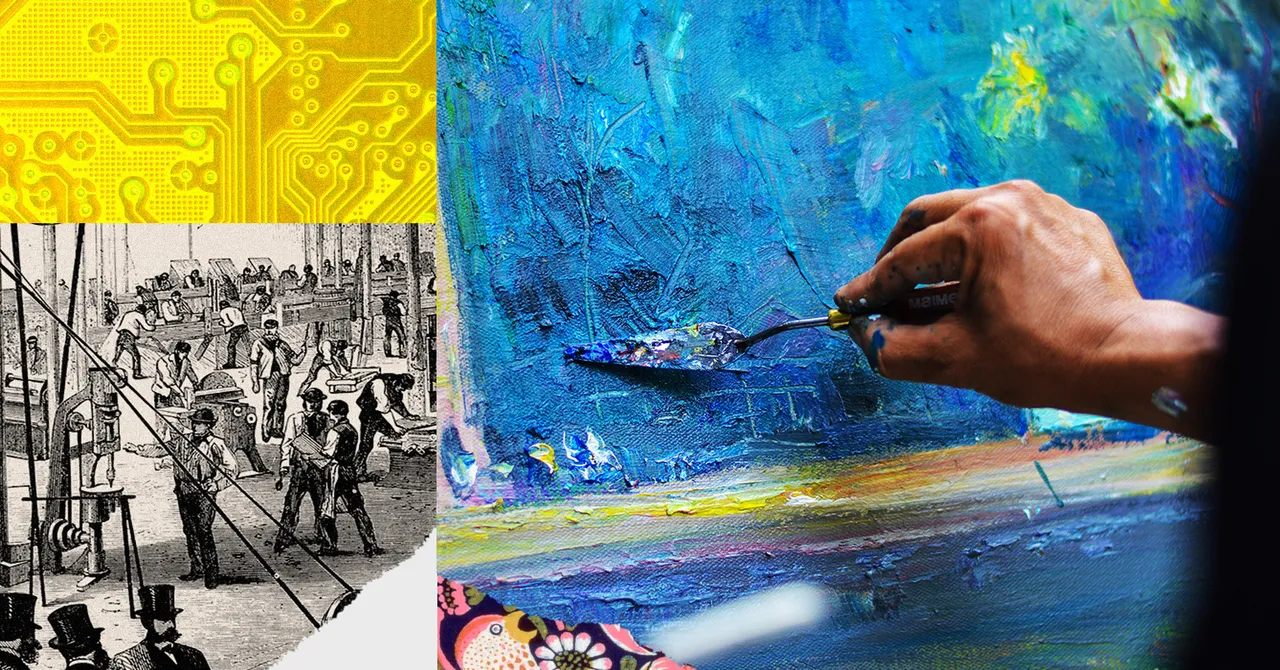AI creativity, Artificial Experiences (AI) has made groundbreaking movements in diverse regions, from healthcare to mechanization, but one of the most questionable talks turns around its influence on imagination. Can AI really supplant human inventiveness in craftsmanship and composing, or is it just a advanced device that upgrades human resourcefulness? Let’s jump into this talk about and investigate both sides of the argument.
Understanding AI’s Part in Creativity
AI has advanced from basic mechanization to complex profound learning models that can compose music, create reasonable depictions, and indeed type in compelling stories. With instruments like DALL·E, MidJourney, and ChatGPT, AI is able of creating substance that closely takes after human-generated imagination. But does that cruel it can completely supplant human craftsmen and writers?
How AI is Changing Art
1. AI-Generated Canvases and Designs
AI-powered stages such as DALL·E and Profound Dream make outwardly staggering advanced work of art. These apparatuses can produce unique pieces by analyzing designs from existing craftsmanship styles, advertising modern translations of inventiveness. In any case, AI needs enthusiastic depth—it doesn’t involvement motivation the way a human does.
2. Music Composition with AI
AI-driven program like AIVA and Amper Music can compose ensembles, pop tunes, and foundation scores. Whereas they can copy melodies and harmonies, can they truly capture the soul-stirring sentiments that human specialists pervade into their compositions?
3. AI in Film and Animation
AI is as well making waves in filmmaking, making a contrast with scriptwriting, scene time, and in fact deepfake innovation. A few exploratory AI-generated movies have picked up consideration, but they still require human input for narrating profundity and enthusiastic resonance.
AI in Composing: Can It Supplant Authors?
4. AI-Generated Substance for Blogs and Articles
Tools like ChatGPT and Jasper AI can create well-structured articles, web journal posts, and showcasing duplicates.
5. Imaginative Composing and Storytelling
While AI can make compelling stories, it fights with innovativeness and more basic themes.
Human makers draw from person experiences, sentiments, and social influences—something AI needs totally. Can AI really make a novel that resounds with perusers on an eager level?
6. Verse and Verses: Can AI Capture Emotion?
AI-generated verse and song verses can be curiously, but they habitually feel mechanical. The quintessence of verse is profoundly tied to human encounters, making it troublesome for AI to imitate the crude feelings of a sincere lyric or song.
The Restrictions of AI Creativity
7. Need of Passionate Intelligence
One of AI’s greatest confinements in inventiveness is the nonattendance of genuine feelings. It forms information and recognizes designs but does not involvement bliss, torment, or motivation like humans.
8. Moral Concerns and Authenticity
With AI-generated craftsmanship and composing getting to be more predominant, moral questions emerge. Who claims AI-created substance? Can AI craftsmanship be considered unique, or is it fair an progressed frame of plagiarism?
9. Dependence on Human Input
AI cannot make from scratch—it depends on existing data to make advanced substance. Without human input, AI needs veritable imagination and is kept by the datasets it has been arranged on.

How AI Can Overhaul Human Creativity
10. AI as a Device, Not a Replacement
Instead of supplanting specialists and scholars, AI can be seen as a apparatus that upgrades human imagination. It can help in conceptualizing, creating thoughts, and indeed refining aesthetic techniques.
11. Collaboration Between AI and Humans
Many craftsmen and scholars are presently utilizing AI as a imaginative accomplice. Scholars can utilize AI-generated drafts as motivation, in spite of the fact that stars can test with AI-assisted plans to pushed imaginative boundaries.
The Future of Inventive vitality: AI vs. Human Artists
While AI is verifiably changing the imaginative scene, it is unfathomable to supplant human inventive vitality totally. Craftsmanship and composing are profoundly individual shapes of expression, formed by person encounters, feelings, and social foundations. AI can mirror, help, and indeed enhance, but the pith of human inventiveness remains irreplaceable.
Read More: The Ultimate Guide to Images Processing: Convert, Generate, and Enhance Images with AI
Conclusion
AI creativity has, without a doubt, revolutionized imagination, advertising modern conceivable outcomes in craftsmanship and composing. In any case, it is not a substitute for human creative energy, feeling, and inventiveness. Instead of dreading AI’s part in inventiveness, grasping it as a collaborative instrument can lead to an energizing combination of human resourcefulness and innovative advancements. After all, inventiveness isn’t fair, almost creating content—it’s almost narrating, expressing, and bringing out feelings, something AI still has a long way to ace.
Explore other popular Posts:
Blog | News | Entertainment | Education | Sports |
Technology | Cryptocurrency | Stock | Home | Sitemap





